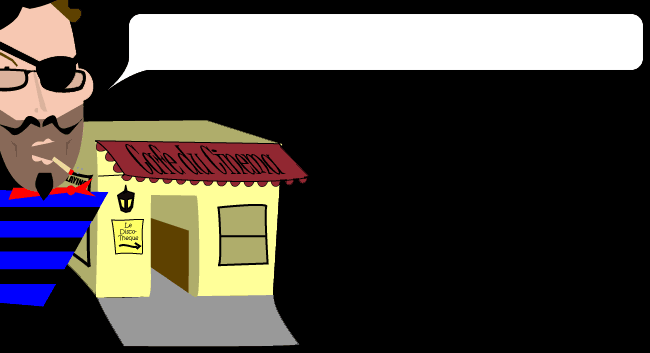by Jim.
Big Night is light fare that occasionally hints at what could have been if given greater attention - promising more on the nose than is delivered on the palette. The film, the story of two Italian immigrants trying to make their mark on the world with a quaint restaurant, is one which often rises to include wonderful scenes which showcase the strengths of the actors, but overall, the shifts in character and themes of conflict lack punctuation. I'm all for film art being an "open loop," with a bit of mystery and enough room for varied interpretation by its audience, but the best films, the ones which seem to elicit the greatest amount of emotion when I view them, progress through dramatic peaks and valleys, while Big Night lacks enough punctuation to make viewers aware of its shifts in dramatic structure.
The central theme is clear, and especially promising as a metaphor for the struggle of any artist - the two brothers are the living manifestations of either side the eternal conflict to which artists since time immemorial owe their greatest troubles - Primo is a purist to a fault, somewhat a caricature of what any artist can hope to be, while Secondo represents the commercial imperatives and desires which are at once the voices of pragmatism and also a 'plague' upon the purity of the artist. With the exception of dialogue which tells of this conflict in a more blatant (i.e. careless) fashion, we aren't often enough given a chance to watch the conflict in action. The film opens strongly enough, with a delightful scene that throws the viewer into the fray with assured rapidity, but like so many moments of this film, we're quickly whisked past these bits of tension in a manner that seems to cheat the audience of a more thorough exploration of the themes.
The seduction of Secondo by his commercial longings (evident in Campbell Scott's care-salesman-as-pimp and the lingering shots of the Cadillac) seems to be redundant and unnecessary at this late a stage in the film. Tucci's Secondo should have been more clearly a combination of the businessman he is in competition with and his own, more sympathetic character. The conflict between his desires and circumstance, between his ideas for the business and his brother's passion for his craft seem to ebb and flow during the running of the film, brought to front now and again but never fully explored.
Still, the film offers some wonderful moments - especially the exchange between Primo and a prospective date, the flower girl - the interplay between the two is nice, as when we see Primo, the lion of the kitchen, being lead by a rather unassuming woman, only to watch him open up when he has her on his familiar turf. It is a moment like this, and others alike which make me wish the entire film was given this much attention, or that the overarching themes were sustained with such intense energy.
The DVD offers a nice transfer and good sound but little else - when will DVD manufacturers figure out that 'scene selections' qualifies as a 'special feature' like 'round wheels' would on a car? And... just what makes interactive menus interactive? Is it that they actually perform some function when I click on them? Gee, thanks.
back.
Varietal: Elegant, Silky Red
Vintner: Stanley Tucci/Campbell Scott
Vintage: 1996
Vineyard: Rysher/Timpano
